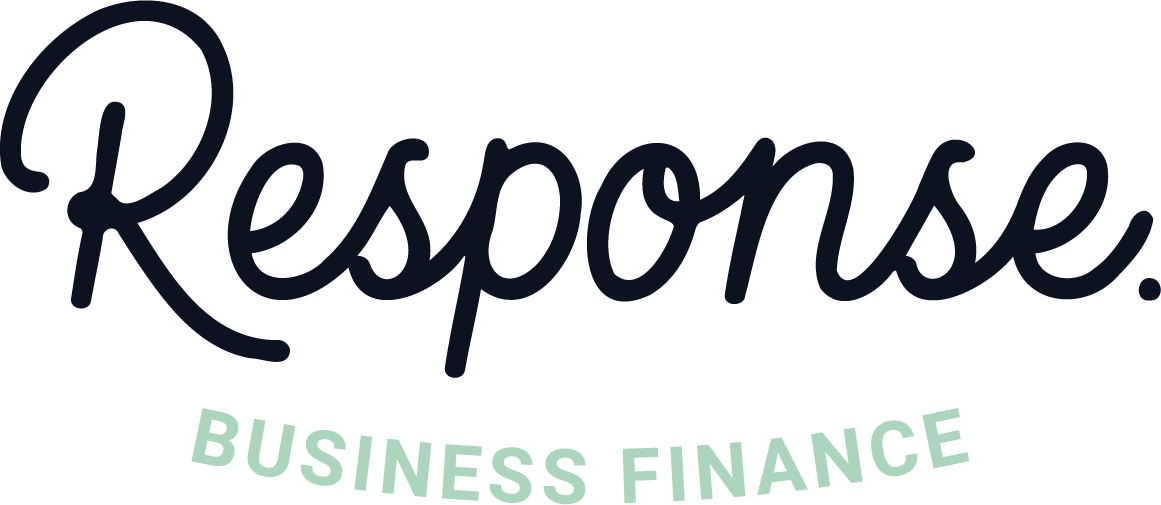
Blog Article by Response Business Finance
Which Businesses Can Use Invoice Finance
You’ve heard about invoice finance, but will it actually work for your type of business? The truth is, while invoice finance can transform cash flow for many companies, it’s not suitable for everyone. Some industries thrive with it, others face challenges, and a few simply can’t use it at all.
According to UK Finance, around 35,000 businesses across the UK currently use invoice finance, with the industry providing over £20 billion in funding at any given time. Recent research shows that 27% of businesses with turnover between £1M-£500M now use invoice finance.
Understanding where your industry fits could be the difference between solving your cash flow problems overnight and wasting time on an unsuitable funding option.
The Perfect Invoice Finance Industries
Some sectors are practically designed for invoice finance. They share key characteristics: creditworthy customers, payment terms of 30+ days, and regular invoicing patterns.
Invoice Finance for Recruitment Agencies
Recruitment is an invoice finance success story. Agencies typically invoice clients 30-45 days after placing candidates, but need cash immediately to pay contractors and permanent staff.
Typical scenario:
A recruitment agency places 20 contractors across different clients, invoicing £80,000 monthly. Instead of waiting 6-8 weeks for payment, invoice finance releases £64,000-£72,000 within 24 hours.
Why it works so well:
Clients are usually established businesses with good credit ratings. The invoicing is regular and predictable. Payment delays don’t reflect the agency’s performance – they’re just standard industry practice.
Invoice Financing in Manufacturing UK
Manufacturers often struggle with the gap between production costs and customer payments. They need cash upfront for materials and labour, but customers – especially larger ones – often pay on 60-90 day terms.
The challenge:
Large orders tie up significant working capital. A £200,000 order might require £120,000 in materials and labour costs before seeing a penny back.
The solution:
Invoice finance can release 80-95% of the invoice value immediately, allowing manufacturers to accept bigger orders and grow without being constrained by working capital.
Professional Services
Consultancies, law firms, accountancy practices, and other professional services are excellent candidates for invoice finance.
Why it’s ideal:
Professional firms often can’t chase payments aggressively without damaging client relationships. They’re typically invoicing blue-chip companies on 45-60 day terms for substantial project work.
Real benefit:
Instead of having awkward conversations about late payments, the invoice finance company handles collections professionally while maintaining client relationships.
If your business fits any of these profiles, speak to an invoice finance expert to explore how invoice finance could unlock your working capital.
Industries That Can Work (With Considerations)
These sectors can use invoice finance successfully, but need to understand the specific challenges:
Can Construction Companies Use Invoice Factoring?
Construction has mixed results with invoice finance, depending on your niche and customer base.
What works well:
The challenges:
Making it work: Most construction companies finance the retention-free portion of invoices (typically 90-95%) and accept that retention money comes later.
Transportation and Logistics
Logistics companies can benefit from invoice finance, but need to consider operational factors.
Strengths:
Regular invoicing to established customers, clear delivery documentation, often dealing with large corporate clients.
Challenges:
Fuel price volatility, vehicle maintenance costs, and potential disputes over delivery terms can complicate the arrangement.
Best fit:
Companies with diversified customer bases and strong operational controls tend to succeed.
IT and Technology Services
Tech services companies are generally good candidates, but the business model matters.
What works:
Project-based work, managed services with monthly invoicing, software development contracts.
What’s trickier:
SaaS recurring revenue doesn’t always suit traditional invoice finance, and intellectual property disputes can complicate collections.
Payment terms consideration:
Many tech companies have shorter payment terms (30 days or less), which reduces the benefit of invoice finance.
Industries That Face Real Challenges
While not impossible, these industries often find invoice finance less suitable or more expensive:
Retail and E-commerce
The fundamental problem: Most retail sales are immediate payments (cash, card, PayPal) with no invoices to finance.
Potential exceptions: Retailers with significant B2B wholesale operations or those selling on extended credit terms might qualify, but they’re the minority.
Alternative challenges: Returns and refunds complicate the process, seasonal fluctuations affect consistency, and margins are often too tight to absorb financing costs.
Hospitality and Food Service
Why it’s difficult: Restaurants, hotels, and catering companies typically receive immediate payment rather than invoicing customers.
The exceptions: Corporate catering companies that invoice businesses for events, or venue hire companies charging on account, might qualify.
The reality: Most hospitality businesses need different funding solutions like asset finance or merchant cash advances.
Understanding these industry-specific challenges is crucial before committing to any financing solution. If you’re in a challenging sector, it’s worth exploring the risks and rewards of using invoice finance to understand whether the benefits outweigh potential complications.
Industries That Simply Can’t Use Invoice Finance
Some business models don’t generate the invoices needed for this type of funding:
Key Success Factors Beyond Industry
Your sector is important, but these factors often matter more:
Customer Quality
Your customers must be creditworthy. A landscaping company invoicing homeowners faces different challenges than one serving commercial property managers. Finance companies assess your customer base as much as your business.
Invoice Size and Frequency
Most providers want minimum monthly invoicing of £15,000-£25,000. Below this threshold, administrative costs make the facility uneconomical for everyone involved.
Payment Terms Sweet Spot
30-90 day payment terms work best. Shorter terms don’t justify the cost, longer terms may indicate customer quality issues that concern finance providers.
Dispute Rates
Industries with frequent quality disputes (like some construction sectors) face higher costs and more restrictive terms. Clean invoicing with minimal disputes keeps costs down.
Business Maturity
Established businesses with track records generally get better terms than startups, regardless of industry.
If you’re wondering how these factors apply to your specific situation, apply for invoice funding assessment to get a free evaluation of your business’s suitability.
Making Invoice Finance Work Better
Even if your industry isn’t perfect, you can improve your position:
Improve customer quality:
Target larger, established customers with good credit ratings. Run credit checks before taking on new clients.
Streamline processes:
Invoice immediately upon delivery, ensure accuracy, use professional templates with clear payment terms.
Document everything:
Keep detailed records, maintain delivery notes and sign-offs, have clear contracts.
Build relationships:
Strong customer relationships reduce disputes and improve payment times.
Alternative Solutions for Unsuitable Industries
If invoice finance isn’t right for your business model, other options might work better:
The Real Impact for Suitable Industries
For businesses that are a good fit, invoice finance can be transformational. Instead of waiting 30-90 days for payment, you get cash within 24 hours of invoicing. This means you can:
The businesses that benefit most are those where cash flow timing – rather than absolute profitability – is the main constraint on growth. For these companies, understanding exactly how invoice finance improves cash flow for small businesses can unlock significant opportunities.
Getting Industry-Specific Advice
Every business is unique, and industry is just one factor in determining suitability. Your customer base, invoicing patterns, growth plans, and operational factors all matter.
The most successful invoice finance arrangements happen when businesses understand both the benefits and limitations. This means getting advice from people who understand your specific sector challenges.
Why Choose Response Business Finance?
We’ve been helping UK businesses across dozens of industries access invoice finance since 2010. Our experience means we understand the nuances – which providers work best with recruitment agencies, which ones understand construction retention, and which excel with professional services.
We don’t just arrange facilities, we help structure them to work with your industry’s specific requirements. Our clients tell us we feel more like trusted advisors than brokers, and that’s exactly how we like it.
Ready to explore whether invoice finance is right for your industry? Get expert advice on invoice finance options tailored to your specific sector.
Mark Squires
Managing Director
Mark Squires is a seasoned professional with a passion for transforming how businesses access finance. As the founder of Response Business Finance (RBF), Mark leads a boutique commercial brokerage built on the principles of sensibility, ethics, and proactivity. His vision is simple yet profound: to make commercial finance personal, offering tailored solutions that empower SMEs to thrive.




